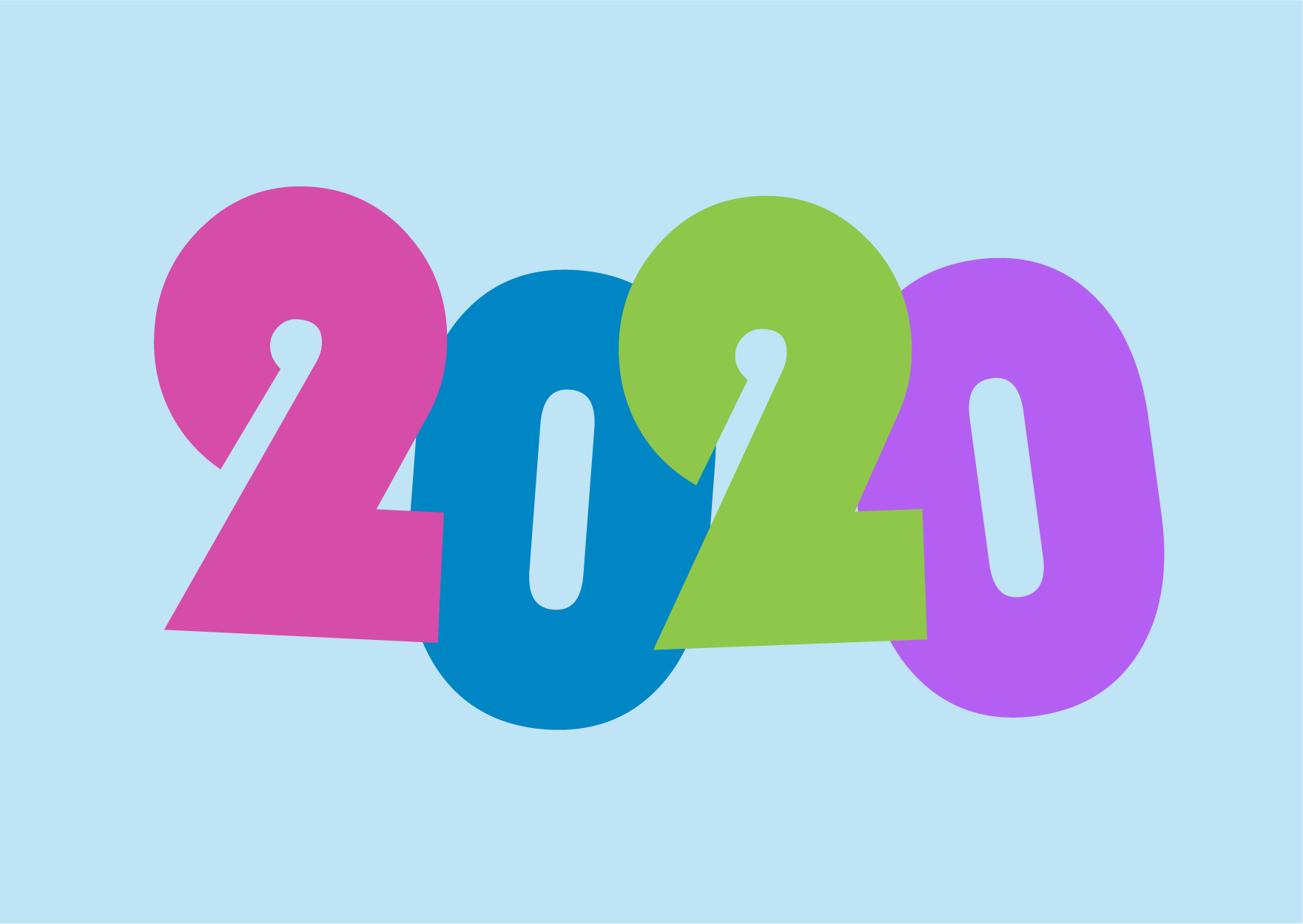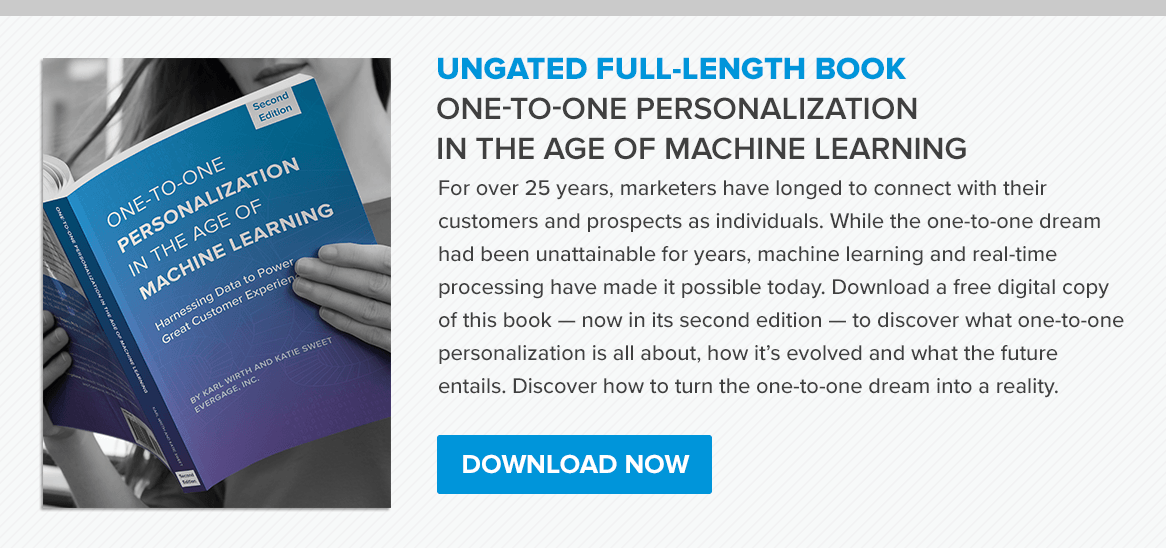
It’s that time of year to break out the crystal ball. As we get ready for a new year and new decade, what does the future hold?
We asked 10 leading experts in the fields of marketing, customer experience, e-commerce, personalization, customer data platforms (CDPs) and more for their industry predictions for 2020. Read on to see the advances, challenges, opportunities and trends they forecast:
1. AI Customer Support Will Get Better – Especially When It Doesn’t Support The Customer
Shep Hyken, Customer Service & Experience Expert, Author and Forbes Columnist
In the customer support world, artificial intelligence (AI) is a hot topic. It fuels self-service by allowing customers to interact with IVRs and chatbots. Unfortunately, these technologies also frustrate customers. But AI isn’t going anywhere, and the good news is that AI customer support will get better – especially when it doesn’t support the customer. It will understand language better – one of AI’s most powerful abilities – which will help customer support agents better serve customers. AI will shift into a support role for the agent, placing the right answers for customers’ questions and problems right at their fingertips. It can also provide information about the customer’s past purchases, prior support calls, buying behaviors and more to help agents deliver a more personalized customer experience. In short, when AI supports the agents rather than the customers, customer support gets better.
2. CDP Discussion Shifts from “Do I Need It?” to “How Do I Run It?”
David Raab, Founder, The CDP Institute
The long-awaited release of true CDPs from Salesforce, Adobe, Oracle and other enterprise software vendors will lead marketing and technology staff to accept CDP as a necessary component in an enterprise data architecture and look across all vendors to find the best solutions for their needs. Confusion will remain about exactly which functions should be part of a CDP vs. other systems, but discussion will shift from defining those boundaries to exploring how users can best build, deploy and activate their CDP. There will also be broader interest in using a CDP outside of marketing, where other departments will recognize that unified customer data can solve some of their own problems as well.
3. Email Will Still Drive All Things Marketing
Dom Nicastro, Senior Reporter, CMSWire
We all discuss the “single source of truth” for digital marketing, but many of us are afraid to say what it is for some reason: email. All roads lead through our inboxes. Yes, even Gen Zers often have to sign up for things with email. Email is one of the, if not the, most effective, wide-reaching tool in the digital marketer’s arsenal (look at these crazy stats). Why not make it a thoughtful, effective experience? So, my prediction for 2020 in digital marketing is: Email will still sit at the top of the digital marketing food chain. Put it this way – ask a marketer what they could live without in 2020: email or AI? What’s the answer?
4. More Personalized Experiences will be Driven by Zero-Party Data
Dustin Ritter, Founder and CMO, Personalization ONE
With the emergence of AI-driven experiences and the restrictions of privacy barriers, brands will increasingly seek to find validated intent and turn to zero-party data (ZPD). ZPD is where a customer intentionally and proactively shares with a brand his or her preferences, purchase intentions and personal context, as well as how the individual wants to be recognized by the brand. Zero-party data is typically provided by the customers for an exchanged value, either real or perceived. Many brands will implement varying levels of AI in combination with ZPD techniques in order to craft the best possible experience for their customers.
5. Retail Experiences Get More Convenient for Consumers
Chris Walton, CEO, Omni Talk and Third Haus; Forbes Contributor
2020 will be marked by efforts to make retail more convenient and available on consumers’ own schedules than ever before – precipitated by Amazon’s continued innovation, as well as retailers realizing that their stores are incredible assets on which to capitalize. Specifically, I expect a flood of activity in hyperlocal micro-fulfillment across the grocery sector, as well as even more high-energy experimentation with Amazon Go and scan-and-go, checkout-free concepts that give consumers time back in their days and that personalize their shopping experiences to an even greater degree. Consumers want what they want, when and where they want it – and if that means going to a physical store, the bar on transaction speed and self-service will continue to be raised higher and higher.
6. The One to One Promise Becomes Real. Now What?
Geoffrey Bock, Principal, Bock & Company, and TechTarget Contributor
We have come a long way since Don Peppers and Martha Rogers first popularized the notion of personalization in their seminal book, The One to One Future, published in 1993 at the dawn of the web. As we begin a new year and a new decade, it’s safe to say that, thanks to advances within the content technology ecosystem, the one-to-one promise is becoming real. Organizations have multiple ways to personalize their digital presence.
Yet success often gives rise to unintended challenges. When it comes to personalization, there are rising questions and concerns about privacy and trust. Is it possible for firms to know too much about their customers and introduce potential business risks?
To that end, organizations implementing personalization initiatives will devote more effort to these issues in 2020 and beyond. Certainly, there are misinformation and unwarranted fears to overcome. At the same time, I think that organizations are going to need to add guard rails to their digital offerings, to enhance security and privacy, and to deliver “trusted and verified” personalized experiences.
7. Data Will Drive the Experience Economy
Sheryl Kingstone, Research Vice President for Customer Experience and Commerce, 451 Research
“Good enough” is no longer enough in this experience economy – where experiences, rather than products, remain the battleground of the future. Our research shows 68% of digital leaders are prioritizing the creation of a single view of the customer across disparate data sources, as a means of creating immersive, engaging and contextually relevant experiences. While this goal is nothing new, its attainability is. The key is data – breaking down silos and successfully harnessing it from interactions across channels. Businesses will improve at this because they must. Last year, $87.5 billion in sales were influenced by personalized offers to consumers – highlighting the need for actionable customer intelligence and unified engagement strategies (e.g., across sales, marketing, commerce and support) to drive frictionless, cross-channel interactions.
8. “Cookbooks” Become a Recipe for Personalization Program Success
Jeffrey MacIntyre, Principal, Bucket Studio
Effective personalization programs often thrive or die on the ability of their participating stakeholders to share and align on common terms and concepts, especially amid complex technology stacks and across team domains like marketing, sales, engineering, product and design. Given the amazing horsepower of personalization engine software, organizations need a way to communicate consistent value through a common, clear and modular vernacular. In 2020, the best personalization teams will adopt mental models and visual frameworks – like this card game prototype – to build a guide to personalization activities (like recipes in a cookbook) in a way that fosters closer, more trusting and high-velocity cross-functional collaboration.
9. Customer Experiences Will be More Valuable, More Often
Susan Aldrich, Consultant in Increasing Customer Experience Value
In the past few years, top brands with massive marketing budgets successfully applied predictive modeling to deliver thrilling experiences for each customer. Those brands will continue to learn how to streamline their operations to make better predictions and better content. Going forward, their technologies, learnings and practices will spread swiftly to the next tier of companies. In a short time, customers will find better experiences at most of their preferred brands. Marketers will profit. All brands, large and small, will be strategically enhancing customer profiles to support predictive, AI-driven customer experience. Those that excel at identifying the most effective data and content, and then making sure to acquire them, will be the leaders.
10. Technology Platforms Will Converge to Improve the Customer Experience
Andy Zimmerman, CMO, Evergage
In 2020, we will continue to see martech solution convergence. For the past couple years, the categories of personalization engines, customer data platforms, marketing automation platforms, content management systems and – in B2B – account-based marketing solutions have all been on a collision course. More and more, they all require capabilities for understanding customers and prospects, activating data at the segment and 1-to-1 levels, orchestrating customer journeys and delivering relevant content. At the same time, companies are seeking a central hub when it comes to customer data management – so the right hand talks to the left, processing information and driving decisions.
The bottom line is that companies are prioritizing the customer experience and see it as essential for effective audience engagement and long-term customer loyalty. To that end, they will invest in solutions that can both bring together extensive amounts of data and – through the use of AI – make sense of that data in order to use it, in the moment, to deliver unique and differentiated experiences whenever and wherever they interact with a customer or prospect.
